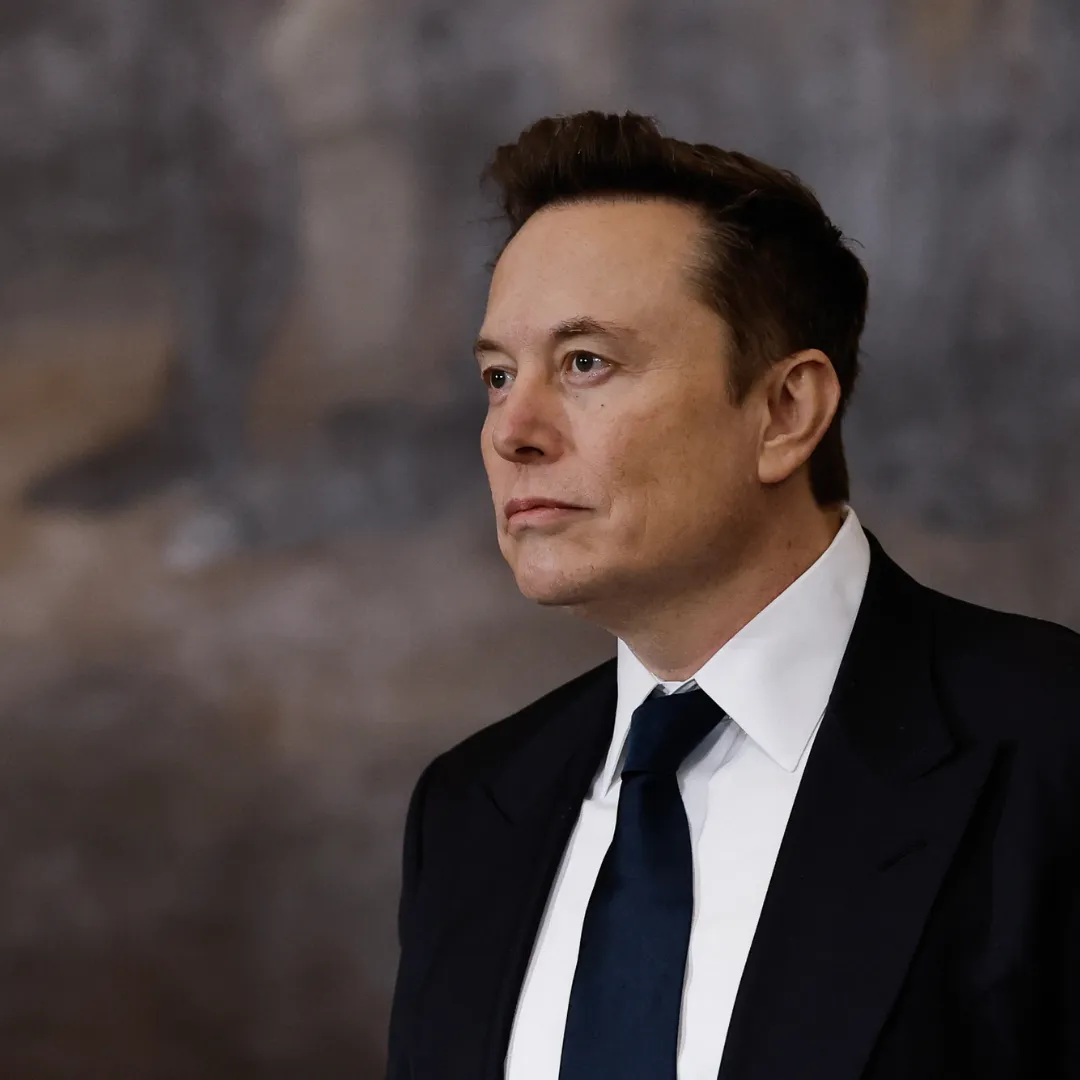
Former President Donald Trump stirred controversy once again during a press event this week when he forcefully dismissed concerns about inflation, directly challenging a reporter who questioned his administration’s handling of consumer prices.
During an exchange that quickly went viral on social media, Trump denied that prices have increased significantly and instead claimed that essential goods like gasoline and eggs are currently cheaper than ever.
In response to a question about the rising cost of living and whether the administration had concrete plans to ease the financial burden on working-class families, Trump waved off the suggestion and targeted the reporter’s credibility.
"You’re fake news," Trump said, pointing his finger. "You always lie. Prices haven’t gone up. That’s a false narrative you’re pushing, and it’s disgraceful."
He went on to assert that gas was currently averaging less than two dollars a gallon.
"Gas is at a dollar ninety-eight a gallon," Trump said. "It’s never been better. You can drive wherever you want. People are saving so much money at the pump, and the fake media won’t report that."
He then shifted to food prices, naming eggs specifically as another example of what he sees as an economic success under his leadership.
"Egg prices are down ninety-two percent," Trump claimed. "Remember two years ago, everyone was crying about eggs? They said you couldn’t get eggs for Easter. I said relax, we’ll fix it. And now we did. You can buy a dozen eggs for less than a cup of coffee."
These statements, while made with trademark confidence and theatrical flair, have drawn widespread criticism and sparked intense debate among economists, political commentators, and everyday citizens alike.
The assertion that prices have dropped so dramatically stands in stark contrast to the lived experience of many Americans, who report continued struggles with housing, groceries, transportation, and healthcare costs.
Still, Trump’s remarks struck a chord with his base, many of whom view him as a truth-teller in a political system full of misleading experts and partisan spin. His supporters cheered his takedown of the journalist, applauding what they see as his refusal to let the media shape public perception.
"He tells it like it is," said Rebecca Lloyd, a retired teacher from Iowa who watched the press conference from home. "Everyone I know is paying less for gas than we did a year ago. I bought eggs last week for a dollar fifty a dozen. That’s not bad at all."
Others, however, questioned the accuracy of Trump’s numbers. While average gas prices have fallen from record highs seen during the early years of the pandemic and in the years immediately following, they are still fluctuating based on regional factors, oil production, and global supply chain concerns.
As of the most recent reports, national averages for a gallon of gas remain above the two-dollar mark in most areas, with only a few exceptions in certain states.
Similarly, egg prices have indeed declined from the extreme highs seen during the avian flu outbreak and subsequent supply shortages, but the claim of a ninety-two percent reduction raised eyebrows. Agricultural experts noted that while wholesale egg prices have eased, retail prices still vary and remain higher than pre-pandemic levels in many regions.
"Egg prices have come down, but saying they’re down ninety-two percent is an exaggeration," said one analyst. "That would imply prices were more than ten dollars a dozen, which wasn’t the case nationally. The data just doesn’t support that kind of drop."
Despite these challenges to the facts, Trump doubled down later in the day, reposting a clip of the exchange on social media and writing, "The truth hurts the fake news media. Gas and eggs down, America up. You’re welcome."
He followed up with another post later that night, saying, "They tried to scare you with inflation. They tried to say prices were out of control. But look around. The shelves are stocked, people are driving, and America is thriving again. Don’t believe the lies. Believe your own eyes."
Trump’s comments come as his administration prepares for a series of rallies and town halls aimed at bolstering support ahead of the 2026 midterm elections. Economic messaging has taken center stage in these efforts, with Trump repeatedly contrasting his current tenure with what he describes as the "disastrous" policies of the Biden administration during the previous term.
"Under Biden, we had chaos. People couldn’t afford groceries. They were begging for relief," Trump told a crowd in Ohio earlier this month. "We turned that around. We unleashed energy, we brought back industry, and we cut red tape. Now prices are coming down because we let the market work."

The narrative Trump is building echoes his broader political strategy, which focuses on projecting strength, dismissing criticism, and promoting a version of reality that aligns with his messaging — even when it draws scrutiny for factual accuracy.
His talent for reshaping public discourse has long been a hallmark of his political brand, and this recent episode serves as a prime example.
At the heart of the issue is a question of perception versus data. While some Americans may indeed be seeing relief at the pump or in the grocery store, others are still struggling with high rents, medical bills, and utility costs.
National trends often mask local disparities, and what feels true in one community may not hold up in another.
Still, Trump's simple and confident declarations tend to resonate more effectively with voters than nuanced economic reports or cautious predictions from experts. By framing himself as the only source of truth in a sea of deception, Trump has managed to maintain the loyalty of millions of Americans who distrust mainstream narratives.
"He doesn’t sugarcoat things," said Alan Mercer, a construction worker from Pennsylvania who voted for Trump in both 2016 and 2020 and says he plans to do so again. "The media wants you to think everything is falling apart. But I’ve got work, my gas bill is lower, and the grocery store isn’t as bad as it was. That’s what I care about."
Democrats, however, see the situation differently. In a statement released after the press conference, Democratic National Committee officials accused Trump of manipulating facts and ignoring the challenges still facing working families.
"The American people deserve honesty about the economy," the statement read. "While certain prices have improved, many households continue to struggle with rising costs and economic uncertainty. It is irresponsible and dangerous to pretend otherwise for political gain."
Trump’s critics also point to what they describe as a pattern of denying reality and undermining trust in institutions, including the press, scientific bodies, and government agencies. By labeling journalists as "fake" and dismissing questions out of hand, they argue, Trump is contributing to a broader erosion of democratic norms and accountability.
"He doesn’t answer questions. He attacks the people asking them," said a media ethics professor who watched the exchange. "That’s not leadership. That’s propaganda."

Whether Trump’s claims about gas and egg prices stand up to scrutiny may matter less in the long run than how they are received by voters. With the political climate as divided as ever, facts are often filtered through partisan lenses, and the same data can be interpreted in radically different ways depending on the messenger.
For Trump’s base, the numbers he cites are less important than the confidence with which he delivers them. His appeal lies in his ability to make people feel that things are getting better — or at least that someone is in control.
As Trump continues to tour the country and hold public events, it is likely he will keep emphasizing the themes that have long defined his political career: opposition to the media, a focus on economic populism, and an unshakable belief in his own version of events.
"You can trust me," Trump told the crowd at a recent rally in Arizona. "I told you we’d bring prices down, and we did. I told you we’d win again, and we will."
Whether the data fully supports his claims is a matter of debate. What is not in question is Trump’s determination to define the narrative — no matter how loud the critics, or how skeptical the press.


